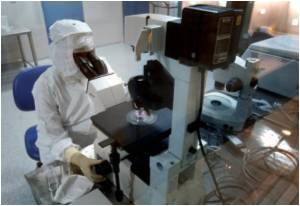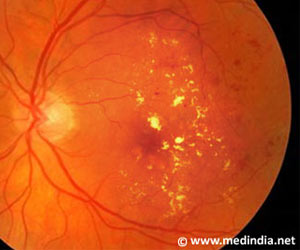Some self-described neurotics who are also conscientious, tend to have the lowest levels of Interleukin 6 (IL-6), a biomarker for inflammation and chronic disease reveals a new study.

Researchers at the University of Rochester Medical Center made the preliminary discovery while conducting research into how psychosocial factors such as personality traits influence underlying biology, to predict harmful conditions like inflammation.
Known as one of the "Big 5" traits, neuroticism is usually marked by being moody, nervous, and a worrier, and linked to hostility, depression, and excessive drinking and smoking.
The scientific literature is rife with findings that extreme anxiety and self-medicating with alcohol and other substances due to neuroticism are detrimental to long-term health. The other four traits are openness (creative, curious, broad-minded), extraversion (outgoing, friendly, talkative), agreeableness (helpful, warm, sympathetic), and conscientiousness (organized, responsible, hardworking).
Nicholas A. Turiano, Ph.D., a post-doctoral fellow in the URMC Department of Psychiatry, wondered about a gray area - those people with average-to-high levels of neuroticism who are also conscientious. Exhibiting higher levels of conscientiousness as well as neuroticism points to folks who tend to be high-functioning in society, very organized, goal-oriented, planners, and more likely to be reflective.
"These people are likely to weigh the consequences of their actions, and therefore their level of neuroticism coupled with conscientiousness probably stops them from engaging in risky behaviours," said Turiano.
Advertisement
Researchers studied many pathways between personality, health behaviors, and chronic disease, but the neuroticism-conscientiousness interaction emerged among 441 individuals who scored moderate to high on both traits. And, the higher a person scored in both conscientiousness and neuroticism, the lower their levels of IL-6. This group also had lower body-mass index scores and fewer diagnosed chronic health conditions, results showed.
Advertisement
"Speculation is that healthy neurotics may be hyper-vigilant about their lifestyle and about seeking treatment when a problem arises. It's their conscientiousness that guides their decisions to prevent disease or quickly get treatment when they don't feel well," Turiano said.
However, Turiano cautions that more research is needed before scientists can draw firm conclusions.
The study has been published online by the journal Brain, Behavior, and Immunity.
Source-ANI









